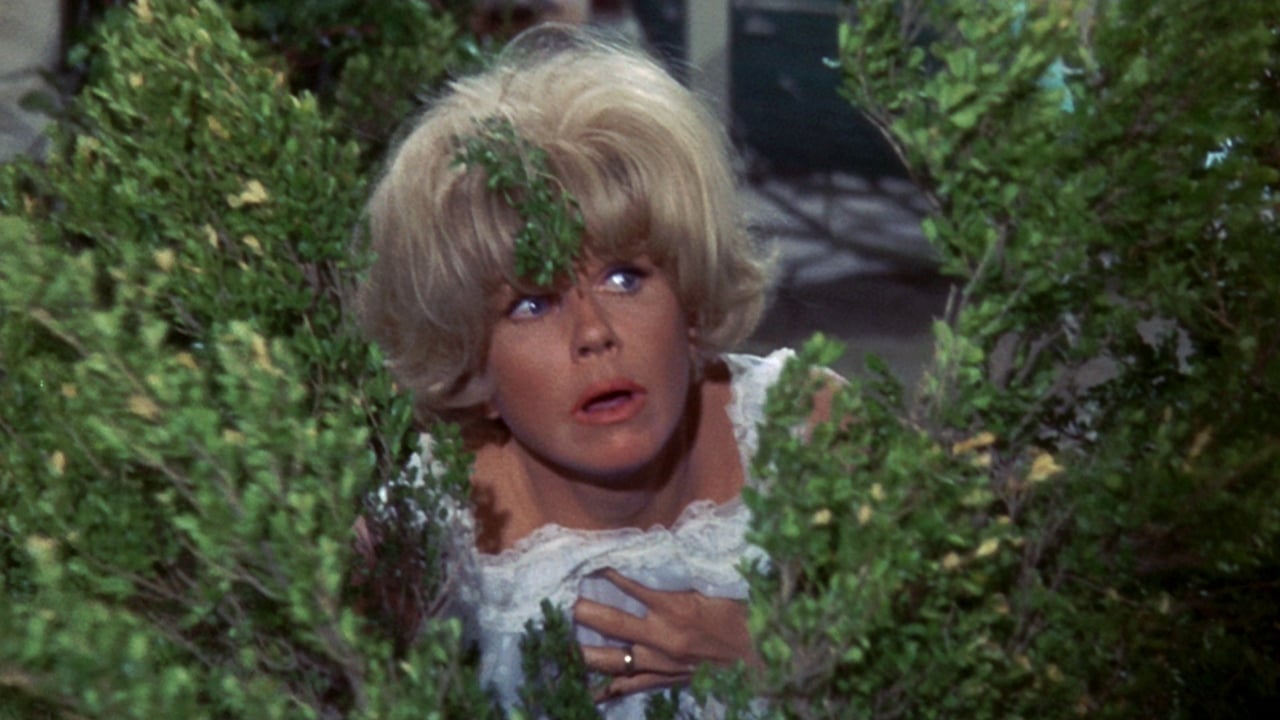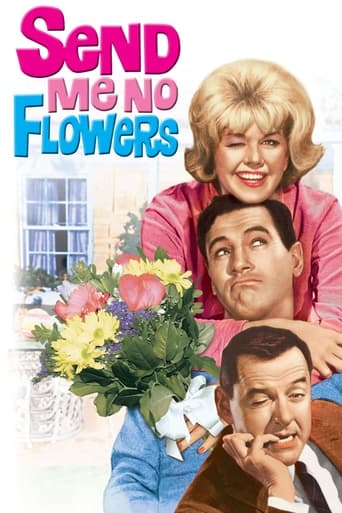InformationRap
This is one of the few movies I've ever seen where the whole audience broke into spontaneous, loud applause a third of the way in.
Ariella Broughton
It is neither dumb nor smart enough to be fun, and spends way too much time with its boring human characters.
Marva-nova
Amazing worth wacthing. So good. Biased but well made with many good points.
Wyatt
There's no way I can possibly love it entirely but I just think its ridiculously bad, but enjoyable at the same time.
Davis P
Rock Hudson and Doris Day star in this classic comedy film. Doris Day is lovable and nice as ever in her starring role, and Rock is great here too. Rock Hudson is great as the typical 50s style husband, he's even better when consider the fact that he was gay in real life. I'm a big fan of Mr. Hudson because he is just so lovable and I have always been so sympathetic towards him, because of him having to hide his true sexual orientation because of old school prejudice and discrimination. But anyways, back to the film, the movie is obviously well acted, and it's well written, the dialogue is funny and the dialogue and chemistry between Day and Hudson is electric! I suggest send me no flowers to people who love a good funny classic film. It's just a very enjoyable cute movie about a married couple who go through obstacle after obstacle, from Hudson thinking he is dying from a terminal disease, and Doris Day thinking he's cheating on her. Go and enjoy this cute comedy classic. 8/10 for Send me no flowers.
edwagreen
Last and definitely the worst of the Doris Day-Rock Hudson trilogy marks this 1964 film.The picture is done in by miserable writing and a story line that you can only take too far. It's basically the story of a hypochondriac who misunderstands his situation in the doctor's office and comes away with the idea that he is dying. Now, this is not exactly Rock Hudson's type of genre.Rock eventually tells wife Doris about all this and there is complete mayhem and more misunderstanding when Doris discovers this isn't so. She feels that Rock has told her this to cover up an alleged affair.Tony Randall again joins the Hudson-Day team, but this time he talks in a monotonous tone of voice, as the next door neighbor caught up in this nonsense.
Robert J. Maxwell
If this movie had been a one-shot deal, standing by itself, instead of third in a series of fluffy domestic comedies starring Doris Day and Rock Hudson, it might have been more appreciated. After all, what is it except an unusually good example of what might be called neo-screwball comedy? Make it in black and white in 1941, put in Cary Grant and Irene Dunne, call it "My Favorite Hypochondriac", and you've got a hit on your hands.Rock Hudson is no Cary Grant. Nobody is, although Grant was to replace Hudson in a later entry in the series. But Hudson had a modest flair for comedy. And here, in this context, his stupefaction and self pity are handled very well, an ironic contrast to his masculine frame and heroic features. Doris Day is no slouch either. She was no longer a spring chicken but she's cute, sexy, and a more accomplished performer than Hudson. Tony Randall provides excellent support for the third time, though his constant drunkenness doesn't provide his character with the inventiveness of his earlier two roles. It isn't funny to simply see a man drunk. He must do or say something funny. Paul Lynde is superb as the avaricious cemetery owner. Edward Andrews is funny for a change, instead of being slimy and underhanded. He's always grumbling about how the specialists like cardiologists are making a fortune and the allergists manage to keep bankers hours because they never deal with emergencies.The script is quite good too. Not only is the main theme ridiculous -- a hypochondriacal husband tricked into believing he's dying and trying to hide it from his wife while fixing her up with a new husband -- but the situations are studded with gags, as in a superior TV situation comedy. Just one example: Andrews is a doctor who's spent the weekend fishing. He removes his hat and reveals a sharp line across his forehead separating his blazing red features from his pale brow. Nothing is made of it. It's just there.The dialog is keen as well. Another example: Hudson is recording a tape to be given to his wife after his demise. The farewell address sparkles with unintended jokes and ironies. (1) "Yes, I'm dying. My hypochondria finally paid off." And (2) "When I am gone, I would like you to remarry after whatever your bridge club considers a decent interval." The movie is dated of course. All movies are dated the instant they're in the can. Nobody drives jumbo American convertibles anymore. Nobody lives in houses that might charitably be described as Modern Colonial Hideous. Milkmen don't deliver milk. Doctors don't make house calls. And nobody lives on a Universal back lot with fake houses, plastic shrubbery, and astroturf lawns. And the mores are different too. Somehow, even adultery has lost the kick it used to have. But so what? We need more successful comedies. Laughter is the best medicine, although Prozac helps too.
Ed Uyeshima
After directing Doris Day in 1963's still-hilarious "The Thrill of It All!", Norman Jewison showed similar comic sensibilities with this screwball 1964 marital farce complemented by a sharp screenplay by longtime veteran Julius Epstein. This one represents something of a departure in that Day and Rock Hudson, in their third and last pairing, play a married couple from the outset. As George and Judy Kimball, they are a happily married suburban couple hamstrung by his persistent hypochondria. Convinced that he is dying after a regular check-up, George spends the rest of the story preparing for what he thinks will be his imminent death, including setting up Judy with her next husband, a former suitor whom they literally run into at their country club.Unlike the previous two films, Hudson actually dominates this movie, and he is in peak comic form with a dryly funny turn as George. With her glamour minimized in favor of her homespun likability, Day is relegated to the role of the confused wife here, though she has funny moments along the way. Randall steals practically all his scenes as devoted neighbor Arnold constantly in a drunken stupor in his premature bereavement over George's departure, and Paul Lynde has a riotous scene as an overly zealous memorial park director. This one may lack the will-she-won't-she dilemma of the first two films, 1959's "Pillow Talk" and 1961's "Lover Come Back" and is usually dismissed as a domestic comedy, but I think the set-up is genuinely clever and the laughs well-earned. The only extra on the 2005 DVD is the original theatrical trailer. For those interested in all three films, your best bet is to purchase the bargain-priced "Doris Day and Rock Hudson Comedy Collection".

